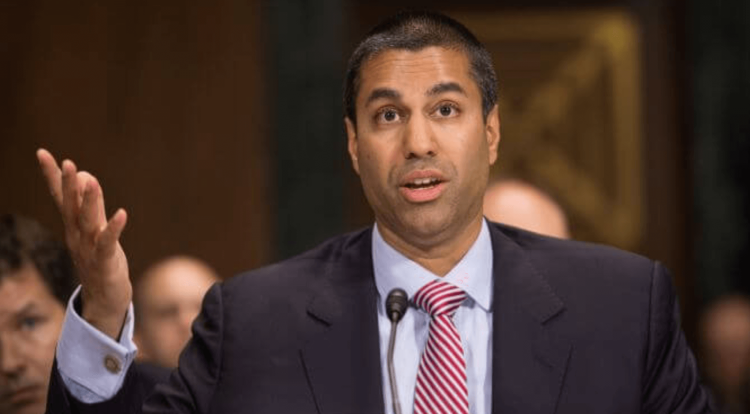FCC Chair-cum-video star Ajit Pai won the day by rallying the agency to crush net neutrality rules in a 3-2 vote. But oddly, in making his case in prepared remarks, Pai offered a compelling argument for even broader regulation of the internet, though that almost certainly wasn’t his intention.
I was listening to him deliver his remarks live, and did a bit of a double take at the end as he started bashing a bunch of unnamed Silicon Valley companies for being hypocrites on the issue. So I went back and read a copy of his prepared remarks. Here’s the bit that left me a bit slackjawed:
Some giant Silicon Valley platforms favor imposing heavy-handed regulations on other parts of the internet ecosystem. But all too often, they don’t practice what they preach. Edge providers regularly block content that they don’t like. They regularly decide what news, search results, and products you see — and perhaps more importantly, what you don’t. And many thrive on the business model of charging to place content in front of eyeballs. What else is ‘Accelerated Mobile Pages’ or promoted tweets but prioritization?
What is worse, there is no transparency into how decisions that appear inconsistent with an open internet are made. How does a company decide to restrict a Senate candidate’s campaign announcement video because her views on a public policy issue are too ‘inflammatory’? How does a company decide to demonetize videos from political advocates without notice? How does a company expressly block access to websites on rival devices or prevent dissidents’ content from appearing on its platform? How does a company decide to block from its app store a cigar aficionado app, apparently because the company perceives that the app promotes tobacco use? You don’t have any insight into any of these decisions, and neither do I.
And then, for emphasis, he added: “Yet these are very real, actual threats to an open internet — coming from the very entities that claim to support it.”
You know what? He’s right. These are “very real, actual threats.” What’s needed are greater rules to require transparency, equal treatment, and tough enforcement. Because, you know, these are “actual threats” according to the dude in charge of the country’s telecommunications policy.
June 5th: The AI Audit in NYC
Join us next week in NYC to engage with top executive leaders, delving into strategies for auditing AI models to ensure fairness, optimal performance, and ethical compliance across diverse organizations. Secure your attendance for this exclusive invite-only event.
Now, if only there were a government agency that existed to monitor such things that would follow up on Pai’s stirring call to regulatory arms.
If you think of one, do let me know.

